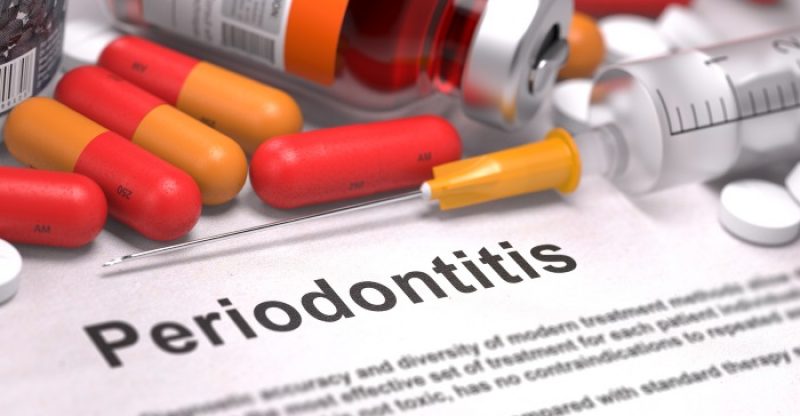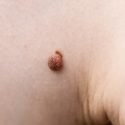Receding Gums Causes, Symptoms and Natural Remedies
Your dental health is a good indicator of your overall health, which means your mouth can tell you and your doctor a great deal about how your current physical condition.
Paying attention to your teeth and gums, and being aware of potential problems, can help you stay on top of other possible health issues (1).
Our guide helps you understand the causes of gum disease and other periodontal problems, as well as shows you how to prevent such illnesses from occurring.
If you want to take better care of your teeth and gums, ensuring the continued health of your mouth, keep reading to learn all about the causes and treatments for receding gums.
Understanding Receding Gums
In order to avoid oral health problems, such as bad breath, gum disease, cavities, infections, and receding gums, you must practice regular and effective oral hygiene.
This will help keep the harmful bacteria commonly found in your mouth at bay while promoting the growth of the good bacteria that are a normal part of your mouth.
Daily brushing and flossing both play an essential role in oral hygiene routines that promote healthy teeth and gums and can help prevent serious problems such as receding gums and other forms of periodontal disease.
When you notice receding gums, this is a dramatic and clear sign that you have some form of gum disease.
This recession is caused by gum tissue being destroyed by plaque buildup on your teeth and gums.
This plaque contains bacteria, which can create inflammation that destroys healthy gum tissue.
Then, gums begin to pull away from your teeth, which exposes the roots of your teeth and leads to the development of pockets in your gum where more harmful bacteria can reproduce, perpetuating the cycle of gum disease.
Gum disease, which leads to receding gums, is the result of an infection that affects both the soft tissue of your mouth as well as the bones that hold your teeth in place.
As bacteria find a home in the pockets created by the inflamed tissue, the connective tissue holding your teeth in place begins to be destroyed, resulting in further loss of gum tissue and, eventually, your teeth, as well (2).
Symptoms of Receding Gums
You could have early-stage gum disease and be completely unaware.
While early signs of gum disease are subtle, if you are paying attention when you brush and eat, you will start to notice them.
If you occasionally notice blood when you brush your teeth, or if you have a few tender areas on your gums when you are eating, you are perceiving the first warning signs of gum disease.
As gum disease progresses and worsens, you will begin to feel your gums pulling away from your teeth, and next you’ll experience more sensitivity issues, as well as other symptoms.
Signs of worsening gum disease include (3):
- Bad breath that is not treatable with mouthwash or by brushing your teeth
- Gums that are swollen or tender
- Dark red gums
- Bleeding of the gums while flossing, brushing, or eating
- Areas where you are able to see more teeth than before especially compared to neighboring teeth
- Teeth sensitivity to hot or cold drinks or food
- Loose teeth
- Discomfort or pain while eating
In addition to hurting your mouth, the bacteria responsible for inflammation and disease can also cause other health problems.
These pathogens have been found to play a role in cancers of the head and neck, rheumatoid arthritis, cardiovascular disease, endocarditis, and even premature births (4).
Therefore, it is highly important that you take care of your mouth, so as not to endanger your health in any way.
Causes of Receding Gums
There are many risk factors that can contribute to the development of periodontal disease and receding gums.
The following are the most common contributors to this oral health problem, and many are not only treatable but preventable.
Changes in Hormones
As your hormones change with age, you may notice your gums begin to become more sensitive.
Women, especially, may notice this phenomenon, which does not just affect menopausal women, but also girls going through puberty, pregnant women, women taking oral contraceptives, and anyone experiencing significant changes to their normal hormone levels (5).
Recent research points to increased progesterone levels in women with gum disease, suggesting a possible contributing factor.
Menopause commonly causes dry mouth, which can also contribute to the growth of oral bacteria that can lead to gum disease and tooth decay (6).
Diabetes
Those with diabetes are more likely to experience an infection than those without this disease.
Periodontal disease is a known complication of diabetes, and researchers have identified a strong trend between the incidences of both diabetes and gum disease.
Infections like those that cause gum disease can make it more difficult to maintain proper blood sugar levels, and thus are known to raise levels of blood glucose.
Diabetics must be vigilant about good oral hygiene in order to prevent gum disease and the infections that lead to receding gums (7).
Smoking
When you smoke, you weaken your immune system’s ability to fight infections, including those that cause gum disease.
If you already have receding gums or any type of gum problem, smoking makes it more difficult to heal the infection, reinforcing the issue of receding gums.
Smokers are twice as likely to have gum disease as nonsmokers, and your risks of the disease rise significantly both with each year and the number of cigarettes you smoke (8).
Poor Hygiene Habits
Those who are lax in their daily oral hygiene habits are much more likely to experience oral health issues, including receding gums.
You should brush twice per day, in addition to flossing or oil pulling daily, to keep teeth and gums healthy and free of infection.
Be sure to use a soft, gentle toothbrush, as rough brushing may lead to problems, as well, even contributing to receding gums and other gum issues.
HIV/AIDS
Because people with HIV/AIDS have compromised immune systems, they are much more likely to experience gum disease.
Another side effect of HIV/AIDS medications and complications of the illness is a dry mouth, which further exacerbates the infections that cause gum disease.
If you have HIV/AIDS, it is important that you maintain good oral hygiene habits, visit your dentist regularly, and consult with your dentist about any issues with receding gums or periodontal disease (9).
Family History
Some people are genetically predisposed to gum disease.
If there is a history of receding gums or other oral health problems in your family, you should take extra precautions to care for your mouth, as you may be at higher risk.
Medications
Some medications can dry out your mouth, which may lead to an increased risk of gum disease.
The most common ones that contribute to this problem include antidepressants, birth control pills, and drugs for heart disease.
Talk with your doctor if you notice a persistently dry mouth that may potentially be caused by a medicine you take regularly.
Grinding Your Teeth
If you grind your teeth, you are at a severely-increased risk of both periodontal disease and receding gums.
If the teeth-grinding occurs at night, talk with your dentist about a night guard, which can protect your teeth from the grinding and help prevent associated problems.
Treating Receding Gums Conventionally
The most common conventional treatments for gum disease and receding gums include spending time with your dentist or periodontist, who can help remove some of the infection that may be contributing to the problem.
These treatments include (10):
- Antibacterial or antimicrobial mouthwash, which is used regularly to kill any infection that may be causing your gum disease. Prescription mouthwash or gel is applied to the gums to eliminate bacteria in the pockets formed where the gums are receding.
- In some instances, it may be necessary for you to take oral antibiotics to kill the infection.
- Deep cleaning, which involves removal of plaque from both above and below the gum line, is a difficult and sometimes lengthy process that goes well beyond a semi-annual cleaning. Lasers can be used to ease this process, in some cases.
- If you are losing bone and gum tissue, your dentist or oral health professional may recommend flap surgery. This involves grafts to promote your body’s natural healing processes in order to regenerate lost tissue.
All of these treatments come with some risk and potential side effects, and you will have to weigh these against those of the alternatives.
If you are interested in treating your gum disease more naturally, as well as promoting the long-term health of your teeth and gums, we have many excellent suggestions to help you.
Treating Receding Gums Naturally
If you hate visiting the dentist or want to try to treat your gums naturally, the following options can help heal your gums, reduce infection, and promote your body’s natural healing processes to stop your gum recession.
Green Tea
A natural source of the antioxidants that boost your immune system, green tea has been used in Japan for centuries to help keep gums and teeth healthy.
Modern research supports these claims.
If you have the periodontal pockets where bacteria can live, drinking one cup of green tea daily can help reduce the depth of these pockets, decrease gum bleeding, and improve the attachment of your gums to your teeth.
Drinking more than one cup a day of green tea can provide even better results (11).
Vitamin C
When you are deficient in Vitamin C, you will likely notice it in your gums first.
Deficiency in this vitamin can cause gum bleeding and inflammation.
To prevent it, eat plenty of foods that are naturally high in the vitamin to prevent inflammation and receding gums.
Vitamin C is found in foods like dark, leafy greens, broccoli, Brussels sprouts, citrus fruit, and red peppers.
Coconut Oil Pulling
The ancient practice of oil pulling is known effectively to reduce bacteria in the mouth and can help prevent many oral problems, including gum disease and receding gums.
Oil pulling means swishing oil around in your mouth for up to 20 minutes, which removes toxins and helps prevent disease (12).
Oil pulling is also an effective way to treat halitosis, or bad breath, and other oral health problems (13).
While coconut oil is a natural antibacterial agent, sesame oil is also known to be an effective tool to use in oil pulling.
You can also use coconut oil mixed with Himalayan salt to massage your gums and reduce inflammation.
After rubbing into inflamed gum tissue, allow sitting for several minutes before rinsing your mouth with water.
These two simple, natural ingredients can simultaneously fight germs and reduce inflammation, both process that is necessary for treating receding gums.
Essential Oils
Using an antiseptic essential oil, such as lemon, can help treat any infection that could be contributing to your receding gums.
Create a mouth rinse using one cup of warm water and ten drops of lemon essential oil.
Gargle for one minute with this mixture, then swish with fresh water.
You can also combine several drops of coconut oil with lemon essential oil to massage into gums; this will calm inflammation and treat gum recession.
Clove oil is also an effective treatment for tooth pain and sensitivity.
Clove works by numbing soft tissue, such as that of the gums, and it is often found as an ingredient in dental hygiene products.
It is a strong, natural, antibacterial compound that also boosts immunity due to its high concentration of antioxidants.
Make a clove mouth rinse using one cup of warm water and six drops of clove essential oil.
Aloe Vera
Aloe vera’s many versatile uses include for oral hygiene.
Aloe vera is excellent in reducing inflammation, so adding its gel to gums can calm inflamed tissue, as well as reduce receding gums and other symptoms of gum disease.
You can also ingest up to 100 milligrams of aloe vera gel per day to boost your immune system and support the healing of your gums from the inside out (14).
Yarrow
Yarrow has been used traditionally for centuries to stop bleeding.
It was previously referred to as woundwort thanks to its use in treating soldiers’ wounds in the period of early American history.
Yarrow’s properties make it an excellent anticoagulant, analgesic, and anti-inflammatory, all of which are useful when treating receding gums.
Chewing fresh yarrow leaves and stems is the simplest and most effective way to use this plant.
You can also make a paste by pounding the leaves, then massaging the paste into bleeding or receding gums.
Yarrow tea can be used for gargling, as well.
If you do not have access to fresh or dried yarrow, look for yarrow essential oil.
Massage a few drops of yarrow oil mixed with coconut oil into your gums regularly to promote their health and reduce symptoms of gum disease.
Sumac
Sumac has many medical applications, including the treatment of receding gums.
The tannins in this plant can be helpful for drawing out fluids built up in your gums, decreasing levels of inflammation, and helping to restore gum health.
If you have nearby a sumac bush or plant, you can simply remove the bark from a twig, and rub the exposed wood into your gums; you can even brush your teeth with a twig.
Boiling the leaves yields sumac tea, with which you can gargle, as well.
Omega-3 Fatty Acids
If you are deficient in omega-3 fatty acids, this lack could be contributing to your gum problems.
Taking daily an omega-3 supplement, such as fish oil, can improve your oral health, and reduce symptoms associated with gum disease and receding gums (15).
Better Oral Hygiene
The final, and probably the most obvious, natural treatment for gum issues is proper oral hygiene.
Brush your teeth twice per day. If you do not practice oil pulling, floss your teeth each time you brush.
If you have receding gums or other signs of gum disease, be sure to use a natural, antiseptic mouthwash daily to fight infection, too.
Conclusion
When you have any kind of periodontal problem, your risk of other diseases and even death is increased.
Your mouth’s state is a window into your overall health, so keeping it clean and cared-for is important.
Receding gums can lead to tooth loss, and even bone loss in your mouth or jaw, if left untreated.
Gum disease is responsible for two out of three lost teeth in adults, so if you want to keep your teeth into old age, it is vital that you take care of your gums throughout your life (16).
To take care of your gums, prevention is going to be your first line of defense.
If you already have receding gums or other oral health problems, practicing good oral hygiene habits, and using natural remedies to treat gum infection and boost your immune system’s ability to fight these germs, are critical.
Both gum disease and receding gums can be caused by poor oral hygiene habits, genetics, smoking, medications, changes in your hormones, HIV/AIDS, diabetes, and grinding your teeth.
FDA Compliance
The information on this website has not been evaluated by the Food & Drug Administration or any other medical body. We do not aim to diagnose, treat, cure or prevent any illness or disease. Information is shared for educational purposes only. You must consult your doctor before acting on any content on this website, especially if you are pregnant, nursing, taking medication, or have a medical condition.
HOW WOULD YOU RATE THIS ARTICLE?






